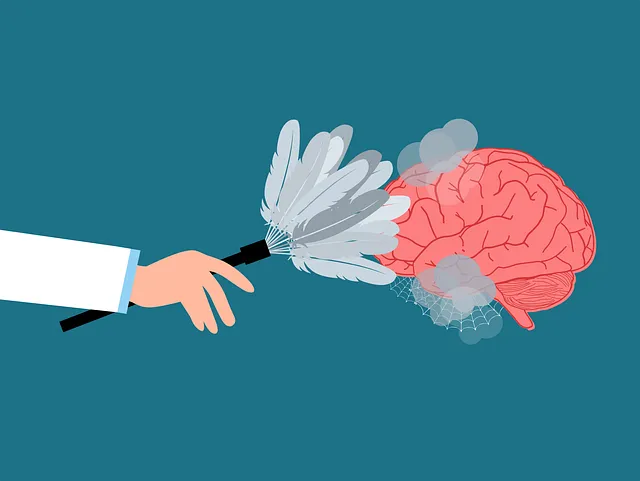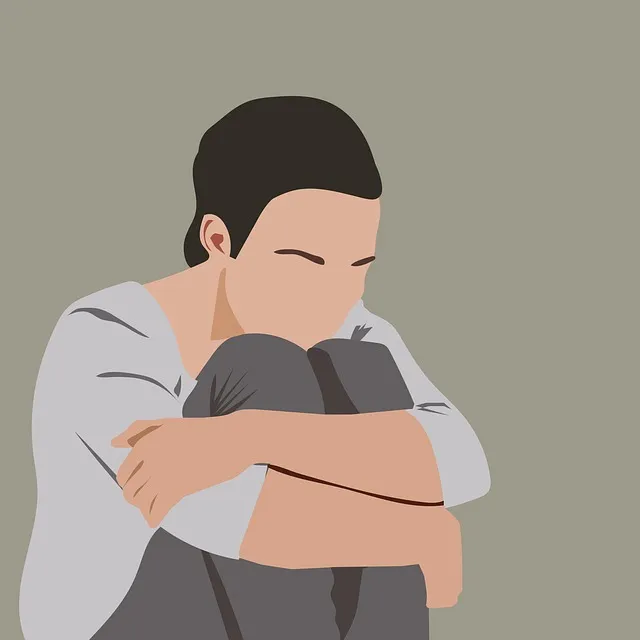Kaiser Permanente Aurora leads in mental health care through specialized Crisis Intervention Teams (CITs), comprising psychologists, social workers, and psychiatrists. Their comprehensive training focuses on emotional regulation, communication, and crisis management, fostering effective team dynamics under pressure. Beyond CITs, Kaiser Permanente offers diverse mental health services, stress management workshops, and cultural sensitivity training to empower both staff and community members in Aurora. Through immersive simulations, empathy-building strategies, and practical exercises, they ensure their teams are prepared to provide top-quality mental health support in high-stress situations.
“Crisis intervention team (CIT) training is a vital resource in equipping healthcare professionals to handle mental health crises effectively. This article delves into the crucial role of these teams, particularly highlighting Kaiser Permanente’s efforts in supporting mental health in Aurora through specialized CIT programs. We explore key components of effective training, including simulation exercises, and discuss the significant benefits and real-world impact of such initiatives. By understanding the importance of CITs, we can enhance emergency response and improve patient outcomes, especially considering Kaiser Permanente’s commitment to mental health services in Aurora.”
- Understanding Crisis Intervention Teams: A Essential Overview
- The Role of Kaiser Permanente in Mental Health Support in Aurora
- Key Components of Effective Crisis Intervention Training Programs
- Benefits and Impact of Specialized Crisis Team Training
- Preparing for Real-World Scenarios: Simulation and Practice in Crisis Training
Understanding Crisis Intervention Teams: A Essential Overview

Crisis Intervention Teams (CITs) are specialized groups designed to provide immediate and effective support during mental health crises. These teams typically include trained professionals from various disciplines, such as psychologists, social workers, and psychiatrists, who collaborate to assess and de-escalate high-risk situations. At Kaiser Permanente in Aurora, the focus on mental health services is evident through their comprehensive CIT programs, which aim to enhance community safety and improve patient outcomes.
These training programs equip participants with crucial skills in emotional regulation, communication, and crisis management. By learning effective de-escalation techniques and strategies for burnout prevention, team members can offer compassionate and competent care. Additionally, the programs emphasize social skills training, fostering an environment where individuals learn to navigate complex interactions while maintaining professionalism during high-pressure situations. Such initiatives ensure that Kaiser Permanente’s mental health services in Aurora remain at the forefront of community support, providing hope and healing for those facing severe emotional distress.
The Role of Kaiser Permanente in Mental Health Support in Aurora

Kaiser Permanente plays a significant role in mental health support within Aurora, offering a range of services to cater to the diverse needs of the community. With a strong focus on preventive care, they provide resources and programs aimed at promoting mental well-being. Their approach includes education on stress management, which is crucial for individuals navigating challenging situations. By integrating these strategies into their offerings, Kaiser Permanente empowers residents with tools to manage stress effectively.
In addition to their community outreach, the organization prioritizes staff well-being by implementing a robust risk assessment for mental health professionals. This ensures that those supporting others’ mental health are equipped with the necessary skills to handle their own challenges. Furthermore, they encourage self-care routine development, recognizing its importance in maintaining and improving mental health. Through these comprehensive initiatives, Kaiser Permanente demonstrates its commitment to creating a healthier and more resilient Aurora.
Key Components of Effective Crisis Intervention Training Programs

Effective crisis intervention team (CIT) training programs are multifaceted and crucial for organizations looking to support their employees’ mental health. One key component is integrating Cultural Sensitivity in Mental Healthcare Practice. Understanding and respecting diverse cultural backgrounds, beliefs, and communication styles ensures that interventions are tailored to individual needs, fostering a sense of safety and trust. This is particularly relevant as organizations like Kaiser Permanente in Aurora recognize the importance of providing comprehensive mental health services that resonate with their diverse workforce.
Additionally, these programs should incorporate Stress Management Workshops Organization techniques to equip team members with tools to recognize and handle stress effectively during crises. Compassion cultivation practices have also proven invaluable, teaching participants to respond with empathy and understanding rather than reactivity, ultimately promoting a more supportive and effective crisis intervention environment.
Benefits and Impact of Specialized Crisis Team Training

Specialized crisis team training programs, like those offered by organizations such as Kaiser Permanente in Aurora, play a pivotal role in enhancing mental health services. These programs go beyond general first aid or CPR training, delving into the intricate skills needed to support individuals facing severe emotional crises. By focusing on mental wellness, journaling exercises, and empathy-building strategies, team members gain valuable tools to de-escalate situations and foster resilience in both themselves and those they assist.
The impact of such training is profound, not only for the crisis team members but also for the community at large. Trained professionals can more effectively navigate challenging scenarios, providing guidance and care that resonates with individuals in distress. This specialized knowledge encourages a culture of mental wellness, where empathy and understanding become cornerstones of support systems. Moreover, by integrating resilience-building exercises into their training, these teams equip themselves to handle an array of crises, ensuring they are prepared to offer sustained assistance when it matters most.
Preparing for Real-World Scenarios: Simulation and Practice in Crisis Training

Preparing for real-world scenarios is a cornerstone of effective crisis intervention team training. Programs like those offered by Kaiser Permanente in Aurora focus on immersive simulations that replicate diverse, high-stress situations. Through these simulations, team members gain invaluable experience in applying coping skills and conflict resolution techniques, enhancing their ability to build empathy with individuals in crisis. Regular practice ensures the team is not just theoretically equipped but practically ready to handle a wide range of mental health challenges.
In addition to simulation, Kaiser Permanente incorporates structured role-playing exercises that encourage participants to develop and refine their problem-solving abilities. By engaging in these scenarios, teams learn to navigate complex situations with care and composure. The ultimate goal is not just to intervene effectively but to foster a supportive environment where individuals in crisis feel understood and empowered. This holistic approach, combining simulation with empathy building strategies, prepares Kaiser Permanente’s crisis intervention teams to provide the best possible mental health services in Aurora and beyond.
Crisis intervention team training programs, such as those offered by organizations like Kaiser Permanente in Aurora, play a pivotal role in enhancing community well-being. By equipping professionals with the necessary skills and knowledge, these programs ensure effective mental health support during crises. Through comprehensive curriculums that include real-world scenario simulations, participants gain practical experience in managing high-pressure situations. This training not only benefits individuals directly involved but also contributes to a more resilient and prepared community, especially in light of Kaiser Permanente’s dedication to mental health services in Aurora.






